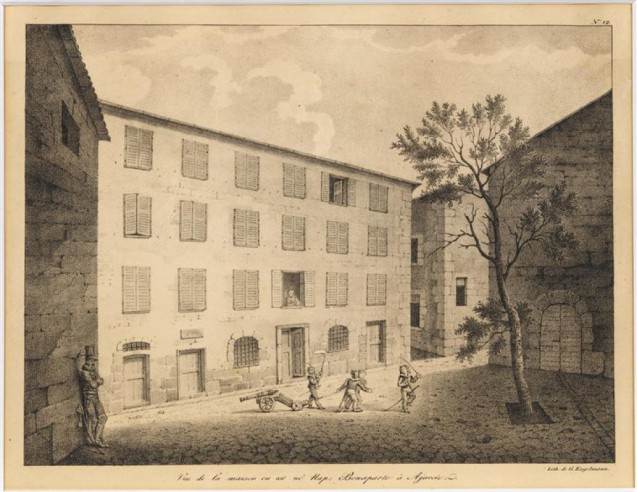At the time Napoleon was born, Corsica had spent five centuries under Genoese domination. What they spoke there was the local dialect and “Genoese”, both idioms with Tuscan roots… We would roughly call this sort of speech today “Italian”. This was the language in which Napoleon’s childhood was bathed, though we cannot say for certain that he did not learn French. It is true that his mother’s French was poor, and that she never really mastered the language. On the other hand, his father Charles Bonaparte, who had received a good education in Tuscany, spoke and wrote the language correctly. Whilst still in Ajaccio, Charles’ two eldest sons, Joseph and Napoleon, were sent to a regular cleric, the Abbé Recco, to complete their training of French. That being said, they were still made to attend a four-month intensive French course (January-April 1778) when they arrived at the Collège d’Autun not far from Paris. By the time he was nine years old, then, Napoleon spoke, read and wrote the “language of Voltaire” satisfactorily. His early writings confirm this. He was however to keep his accent when speaking French, and his spelling was full of Italianisms, confusions and pure inventions, namely: chrestianisme (for “christianisme” [christianity]), naicence (for “naissance” [birth]), sciècles (for “siècles” [centuries]), allors (for “alors” [so]) comune (“commune” [commune]), otorizé (“autorisé” [authorised]), etc. And it must be said that neatness of hand was not a priority of his; in fact his handwriting is frankly almost illegible. And in addition to the errors, his letter forms were unwieldy, and he would sometimes join several words (indeed entire phrases) together in a sort of sausage, as in, for example, delamourdelagloire for “de l’amour de la gloire” [for the love of glory]).
Bullet Point #21 – What was Napoleon’s mother tongue?
Author(s) : LENTZ Thierry
Each “Bullet Point” will confront a question related to the First Empire. My remarks are designed to form the basis for debate and, I hope, research.
(Thierry Lentz, Janaury 2019, translation PH)


